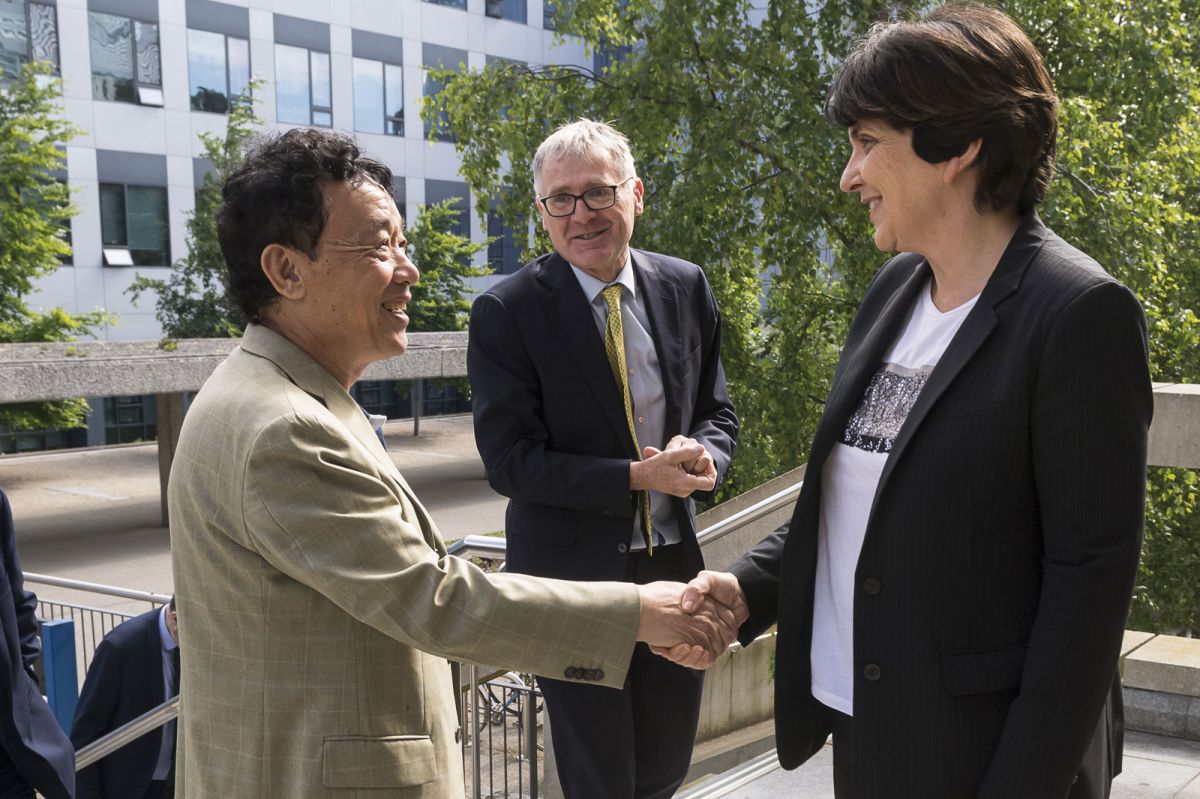‘We need a one-cycle agri-food system’ – FAO director general

Speaking with academics at UCD School of Agriculture and Food Science, Dr Qu Dongyu – who is a scientist in plant breeding and genetics and previously served as China’s vice minister of agriculture and rural affairs – underlined the importance of technology, management, and investment.
“We need to build a circular agri-food system from sustainable livestock, less emissions from new breeding stock, and new animal feed from crops. Then we have to use the animal residues for the crops, for the mushrooms – that is how we build a one-cycle agri-food system.
“We need to provide more with less and we need innovation and technology. So we have a lot of solutions,” he said.
Dr Qu Dongyu visited the Belfield campus ahead of a recent ceremony at Áras an Uachtaráin to award President Michael D. Higgins with the distinguished UN ‘Agriola Medal’ in recognition of his contribution and commitment to the welfare of all peoples, attaining universal food security, and the pursuit of the UN Sustainable Development Goals.
Welcoming the FAO director general to the School of Agriculture and Food Science, UCD president, Professor Orla Feely said: “Sustainability is very high on our agenda in UCD and we have lots of outstanding research going on to address the challenges of sustainability and education. We are always looking at how we can make important things happen in food safety, food security, food safety, and agriculture, so you are in a place of real excitement.”
Professor Frank Monahan, dean of agriculture and head of the School of Agriculture said the school’s teaching and research aligns with the UN’s Sustainable Development Goals.
“We have a new degree programme in Sustainable Food Systems, and we will have our first intake in September. That student will look at food production right through to human nutrition through the lens of sustainability.
“In Ireland, agriculture is a big contributor to greenhouse gases so we are working a lot towards the mitigation of those impacts and the positive effect agriculture can have in terms of carbon sequestration and ecosystem services.
“In peace, justice, and partnership we have humanitarian action programmes available and also agricultural extension,” he said.
Associate Professor Monica Gorman also emphasised the school’s work on agricultural extension which is a key FAO priority in supporting food systems around the world.
“Unless all of the science that we are producing translates into action on farms, where farmers engage with it and adopt it, we will not make the progress we need to make in addressing the different challenges around hunger and environmental sustainability.
“In Ireland, as we move into a more food systems based agricultural policy, knowledge transfer must be seen as a critical step in climate smart agriculture and in achieving sustainability.”





